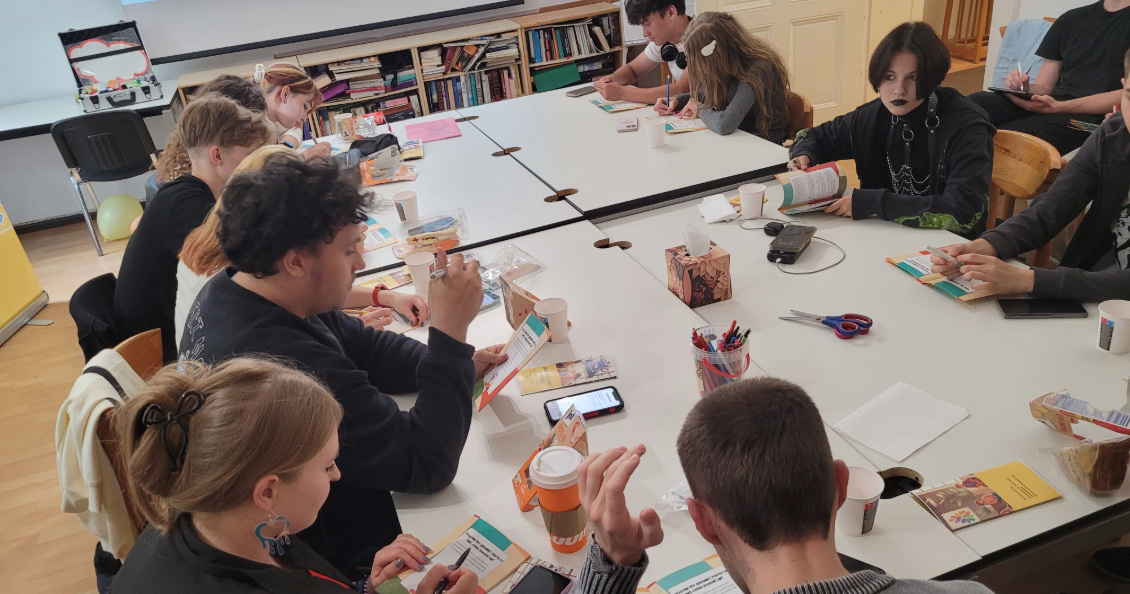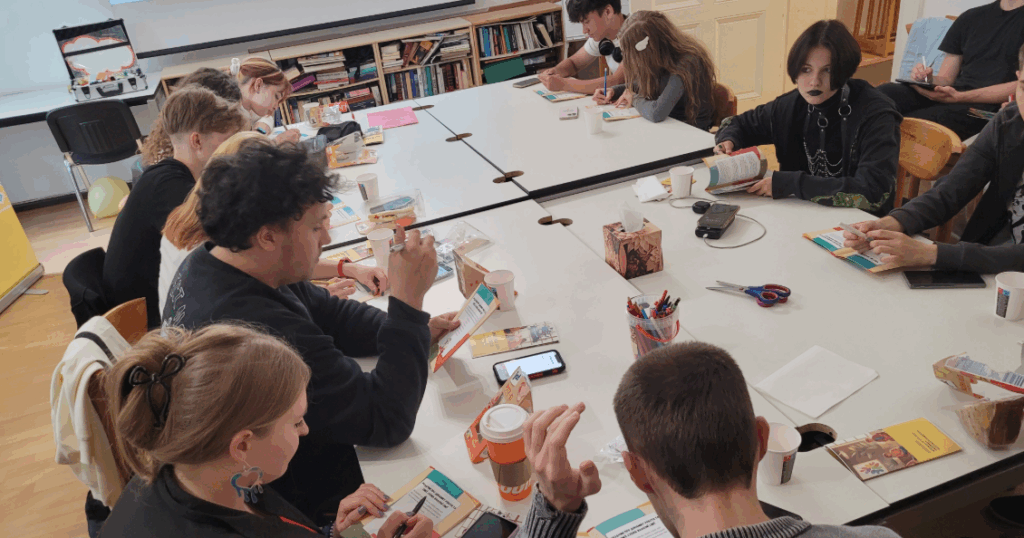With limited knowledge, slow or no-recognition of their qualifications and shying away from formal work: this is Ukrainian teens’ experience of Germany’s job market.

Two out of 3 of Ukranian teens in Germany spend less than 20 minutes per day in school homework or reading.
This alarming finding raises concerns about how teens perceive the value of learning, especially as it relates to their future in Germany’s competitive labour market.
Whilst investing little to no time in solo learning, young Ukranian refugees in Germany also expressed very ambitious aspirations for their future careers.
The purpose of this study and project is indeed to match as much as possible these youth’s ambitions with their sets of skills.
Through study groups teams of specialists work with these teenagers to collect essential data whilst also making them feel that they are listened to.
As previously done in Poland, a team of psychologists, development economists and labour market researchers from Centrum Organizowania Związków Zawodowych and University of Warsaw Faculty of Economic Sciences carried out focus group discussions with 118 Ukrainian refugee youths aged 15-19 years in Wiesbaden, Düsseldorf, Bremen, Hamburg and Berlin during June and July, 2025.
The purpose of the focus groups was to assess Ukrainian refugee teens in Germany with respect to their attitudes toward work and careers, personal experience with working for pay in Germany, work-study balance, household and personal stress factors and knowledge of the rights and protections of workers in Germany.
The full text of the English-language report can be accessed here (German and Ukrainian translations will be available from October).
This study follows on the work of the previous study that was carried out with a similar age group of Ukranians in Poland.
Compared to their peers in Poland, Ukrainian teens in Germany face different, yet equally challenging, barriers to integration, as the study finds. About one-third of teen participants, particularly in Düsseldorf and Bremen, reported high levels of stress and exhaustion related to the pressure of combining school obligations with family duties and personal adjustment. By contrast, two-thirds of participants indicated very little academic stress. Rather, they reported spending very limited time on focused academic tasks outside the classroom.
Unlike in Poland, where some teens turn to informal jobs under pressure, German teens show far less urgency to find paid work in the short term. This may be due to stricter legal enforcement of labour standards, fewer informal job pathways and cultural expectations of more time spent exclusively in study.
Yet, paradoxically, while few Ukrainian teens in Germany are currently employed, most view employment as essential to their future. When asked about their long-term goals, participants expressed ambitious aspirations, ranging from becoming engineers to entrepreneurs, influencers and crypto traders. However, many had only a vague understanding of how to achieve these goals. Few could articulate concrete steps or career pathways and a majority had not researched vocational or academic requirements. Many were unaware of job-search platforms or formal job application processes and instead assumed that work opportunities would come through family networks or community contacts.
Even more troubling were widespread knowledge gaps around labour rights and obligations. Most teens failed to correctly identify basic workplace protections, such as minimum wage, probationary contract conditions or employer obligations around health and safety. This legal blind spot leaves teens particularly vulnerable as they transition from school to work, especially in sectors where exploitation can occur subtly, under the guise of internships, short-term gigs or part-time student jobs.
Based on focus group discussions with young Ukrainian refugees in Germany, the following key needs and design recommendations will guide this project:
- Teens need to develop better awareness of how to balance academic pathways with the reality of wage-earning needs. Many participants in Germany reported a strong preference for wage-earning over study, with little awareness of how current educational efforts can translate into long-term employment opportunities. There is a need to clarify the return on investment of continued learning, particularly language acquisition and support teens in making informed choices about parallel education and work.
- Teens need to understand and manage the stressors of integration. A large number of teens reported feeling overwhelmed, under-rested and emotionally isolated, especially those managing both language integration and wage-earning. Interventions should aim to improve stress management, promote mental health resources and offer peer support networks to alleviate the burden of adapting to a new system alone.
- Teens need clearer guidance on the academic value of integration programs. Many youths in German integration schools struggled to see the purpose or outcome of their coursework. Programs should improve transparency about learning outcomes and better connect curriculum to concrete skill development, future earnings or vocational pathways. Teens should not leave these programs feeling that school is a dead-end or “not worth the time.”
- Teens need structured opportunities to explore job readiness and build practical skills. Focus group participants indicated that practical, job-oriented learning, especially through work experience or self-guided projects, was more valued than abstract school learning. Programs can build on this preference by incorporating internships, simulated work environments or hands-on training tied to real-world applications.
- Teens need support in building self-awareness and confidence in career decision-making. Many of the more isolated or older ones expressed high levels of loneliness, responsibility and career uncertainty. Supporting teens through counseling, mentorship, or peer-led initiatives can help them reflect on their interests, visualize career paths and articulate actionable goals.
- Teens need help managing time effectively, especially when studying and working simultaneously. The focus groups revealed that many teens are working significant hours outside school but still expected to perform academically. Teens would benefit from practical time management tools, school flexibility, and family or community support to avoid burnout and improve their performance in both domains.
This assessment forms the baseline analysis for the ESF+SII project, “Vstupayuchy na robotu (Stepping into a job): Helping Ukrainian Refugee Teens Enter the Central European Labour Market Safely and Legally and Weighing the Trade-offs with Education”, with the co-participation of Fundacja Pro Futuro and UNI Europa.
Responding to the vulnerabilities and knowledge-gaps identified in these focus groups and a parallel assessment in Germany, the project consortium is adapting a career guidance and learning platform for Ukrainian youth to the specific needs in Poland and in Germany and will implement workshops, a help hotline and a career guidance call center in early 2026.
